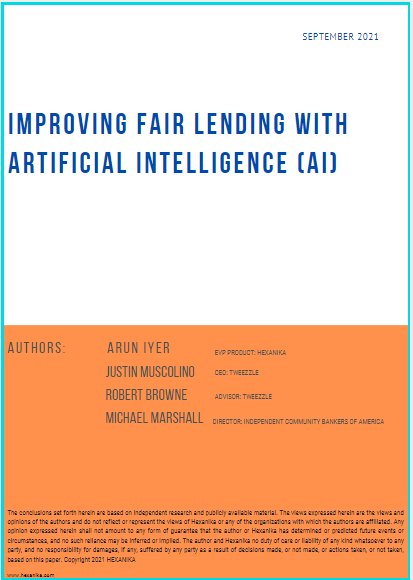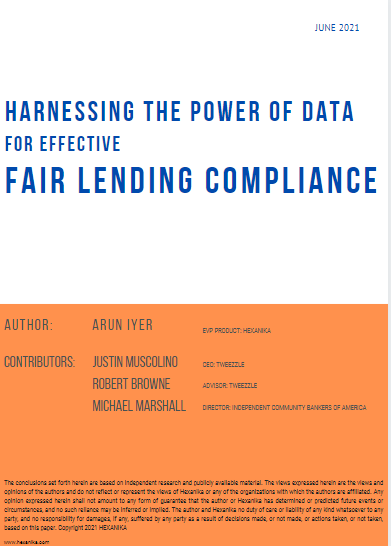Improving Fair Lending With Artificial Intelligence (AI)
In a 2018 Report, the Department of the Treasury assessed the outlook for the implementation of AI in financial services as follows, “Treasury recognizes that the increased application of developing AI and machine learning technologies can provide significant benefits by improving the quality of financial services for households and businesses and supplying a source of competitive strength for U.S. firms. Regulators, therefore, should not impose unnecessary burdens or obstacles to the use of AI and machine learning and should provide greater regulatory clarity that would enable further testing and responsible deployment of these technologies by regulated financial services companies as the technologies develop.”
When it comes to Fair Lending, lenders should take a three-pronged approach;
- Comply – Meet the specified regulatory mandate of annual data submission for loan information in the HMDA and CRA reporting requirements
- Assess – Identify and analyze the risks in key areas of Fair Lending namely Underwriting, Pricing, Redlining, Steering and Marketing. Additionally, perform a comparative analysis of firm’s fair lending performance against peer organizations
- Prevent – Use advanced technologies like machine learning to predict credit decision outcomes based on historical data and compare it against actual approvals / denials and identify disparities and refine existing models and processes. Additionally, use alternative data such as customer complaints to identify any potential discriminatory lending scenarios
In our view, administrative enforcement and litigation initiated by the federal government and directed toward the consumer financial services industry is likely to increase under the Biden administration.
The result of President Biden’s election will be the replacement of the leadership and senior officials within key agencies, including at the Department of Housing and Urban Development (HUD), the Consumer Financial Protection Bureau (CFPB) and the Department of Justice (DOJ). Some of these changes are already started and we have seen Rep. Marcia Fudge (D-OH) confirmed as HUD Secretary, Merrick Garland confirmed as Attorney General, and the nomination of Rohit Chopra as Director of the CFPB. Read More..
This whitepaper explores the concept of Big Data, its history and how it is being leveraged by banks and financial institutions to obtain value from their data.
Big data is the main focus in the IT plans of most financial institutions. As the financial sector becomes increasingly competitive, the value contained within their data sets can determine their success or failure. Their data is increasing rapidly, coming from multiple sources and the traditional tools to analyze and manage this data are largely incapable to cope with the current growth. Big Data is marketed as the solution to address various banking, regulatory, compliance and financial challenges but the true power of technology lies in the value addition it brings to an organization.
Let us understand how and why Big Data technology plays a pivotal role in the banking and financial sphere.





